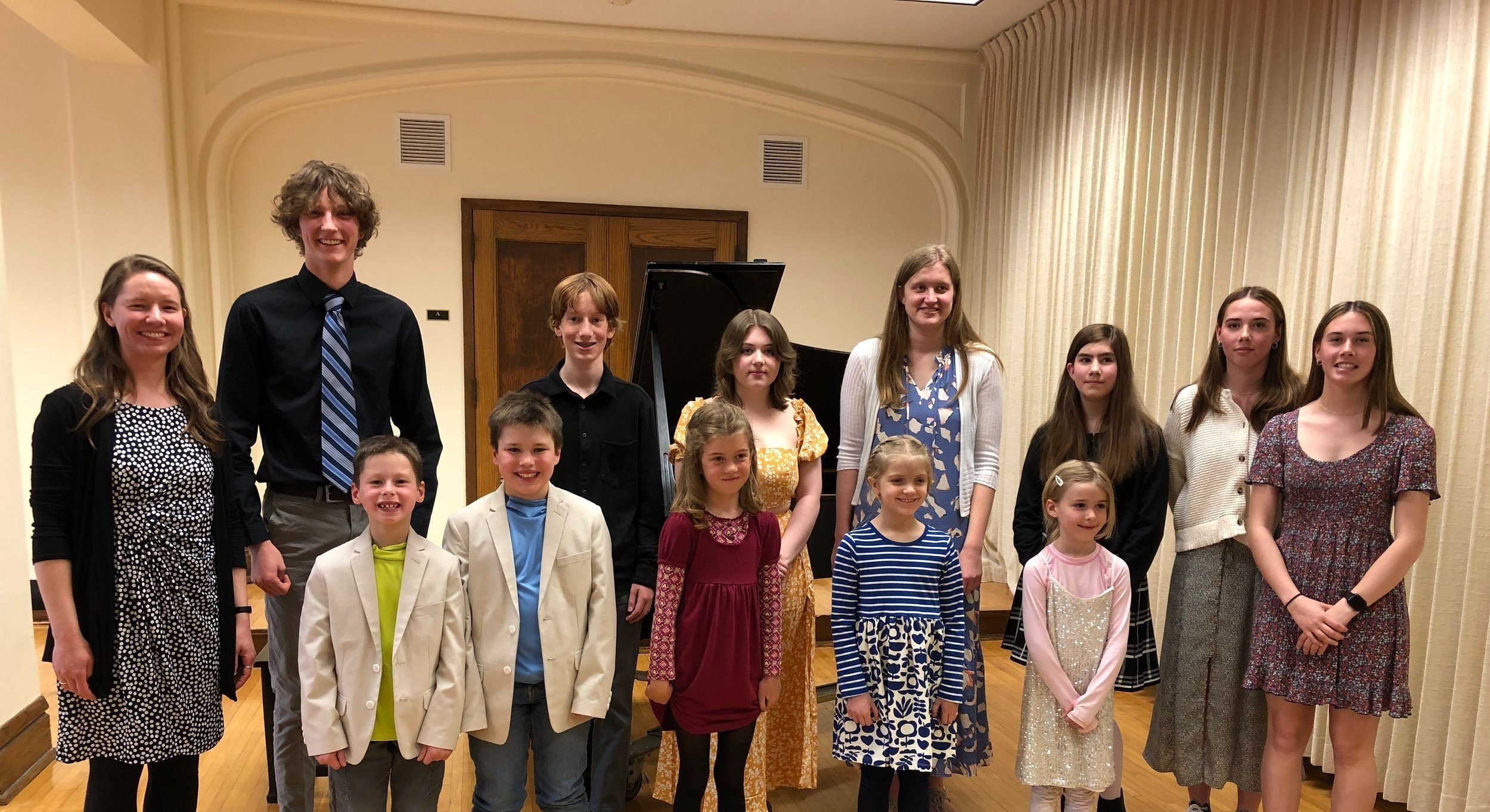
About the Studio
I teach students of all ages and levels of musical experience. Weekly private lessons are held throughout the school year, and I offer Summer Piano Camps as well as private lessons during the summer. Students enrolled in lessons play in piano recitals twice per year, and after 1-2 years of lessons, students can begin participating in events like MMTA Piano and Theory Exams or NFMC Piano Solo Festival.
At home, students are expected to commit to a regular schedule of daily piano practice. For more information, see the page on Studio Policies.
My studio is located at The College of St. Scholastica in Duluth. Families work directly through me (not the College) with payments and scheduling.
Teaching Philosophy and Goals
My highest goal in teaching piano is to lead my students to experience joy and create beauty through music that enriches their own lives and the lives of others. To borrow the words of Shinichi Suzuki, I aspire to help train “noble human beings.” Music has the power to engage the whole person: mind, body, and soul. As my students study music, they learn to work hard in the pursuit of excellence, creatively express their emotions, and exercise physical and mental self-discipline—skills which will make them better citizens of the world, no matter where they are and what they do throughout the rest of their lives.
In order to help my students become competent musicians, I want them to develop technical skills at their instrument, a theoretical and historical understanding of music, and the ability to express human emotions and experiences through the sounds they make at the piano. In the area of technique, my goal is for students to understand the role of their entire bodies in playing music and how to most effectively use their bodies in producing sound at the piano. They should learn to allow their bodies to be balanced and supported while eliminating negative tension, so they can achieve their fullest technical and musical potential and avoid pain or injury.
As I teach students about music theory and music history, I want them to become acquainted with the role and importance of music in all times and in all places and how its styles and uses have developed up to the present day. I hope to lead them to an appreciation and love for the tradition of classical music that has been passed down over centuries. In addition, students’ grasp of how music is put together and written down should allow them to better comprehend all of the music they play and listen to, and it should also enable them to express their own creativity in transposing, arranging, improvising, and composing music.
Finally, my students will develop artistic performance skills as they discover that all music is an expression of something in the human experience. The performer’s task is to determine what the composer intended to express, couple that with a personal response and interpretation, and then communicate all of those emotions, ideas, images, and experiences to the audience in a meaningful way. By learning to communicate through musical means (such as dynamics, tempo, and articulation, as well as the melody, harmony, and rhythm inherent in the piece), students can become true musicians, capable of impacting the world through their art.
